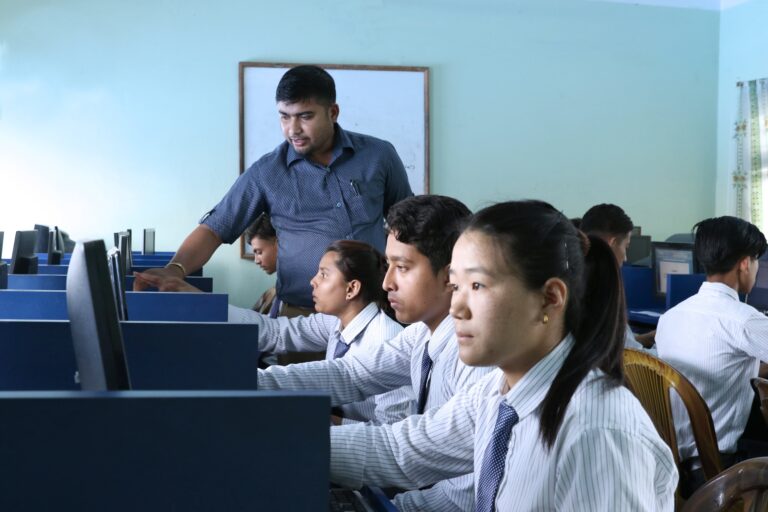Many private school teachers in Nepal struggle with low pay, long hours, and job insecurity. Despite government rules, many schools do not pay fair wages.
Low Salaries and High Stress
Abin Giri (name changed), an English teacher, said young teachers suffer the most.
“There are few jobs, so we have to accept low salaries,” he said. “Schools take advantage of us.”
Teachers in private schools earn far less than government teachers. In Kathmandu, most private school teachers earn about 20,000 rupees per month. The law says primary teachers should get at least 32,000 rupees, but many schools ignore this rule.
Even experienced teachers struggle. “We teach about fairness, but we are not treated fairly,” one teacher said.
Hiding Salaries from Family
Manisha Sharma (name changed) teaches in Buddhanagar. She says she is passionate about teaching but earns very little.
“I help children grow and learn,” she said. “But my salary is so low that I hide it from my husband.”
She fears he would ask her to quit if he knew how little she earned.
“The government and private schools are hurting education by underpaying teachers,” she said.
Teachers Forced to Leave Nepal
Bishal Mishra (name changed) teaches in Shankhamul but plans to leave the country.
“There is no future in teaching here,” he said. “Private schools care more about money than education.”
Many teachers take these jobs because they have no other options.
“The government must make schools follow the law on salaries,” Bishal said.
Fear of Speaking Out
Many teachers feel trapped. If they complain, they risk losing their jobs.
“We cannot even join unions,” one teacher said. “Schools will fire us if we do.” Kathmandu has 640 private schools. In 2075 BS, the government stopped giving permits for new private schools to control commercialization.
Schools are ranked into categories: special, A, B, C, and D. The best-ranked schools pay better. Lower-ranked schools pay much less.
No Complaints, No Action
Govinda Prasad Sharma, head of the Kathmandu Education Department, said teachers should report salary issues.
“If schools don’t follow the rules, complain to the management,” Sharma said. “If they don’t listen, come to us.”
But no official complaints have been filed.
“We hear about unpaid salaries,” Sharma admitted. “But no one has complained.”
He advises teachers to demand appointment letters before taking jobs.
School Owners Hold Power
Hom Kumar Thapa, President of the Institutional School Teachers Union, says private school owners control everything. “Teachers fear speaking out,” he said. “There are no clear rules for hiring and firing. If they protest, they lose their jobs.”
Many teachers work extra hours for no pay. Some schools charge parents extra fees but do not increase teacher salaries. Others deduct provident fund money but do not deposit it. Thapa urges teachers to stand up for their rights. “Do not accept unfair treatment,” he said.
Law vs. Reality
The Education Act of Nepal requires private schools to follow salary rules. Schools must pay at least the minimum wage and set fees according to national standards.
But many schools ignore these rules. Teachers continue to be underpaid and exploited, with little hope for change.
For more updates on Nepal’s education and culture, visit Nepal Monitor.


